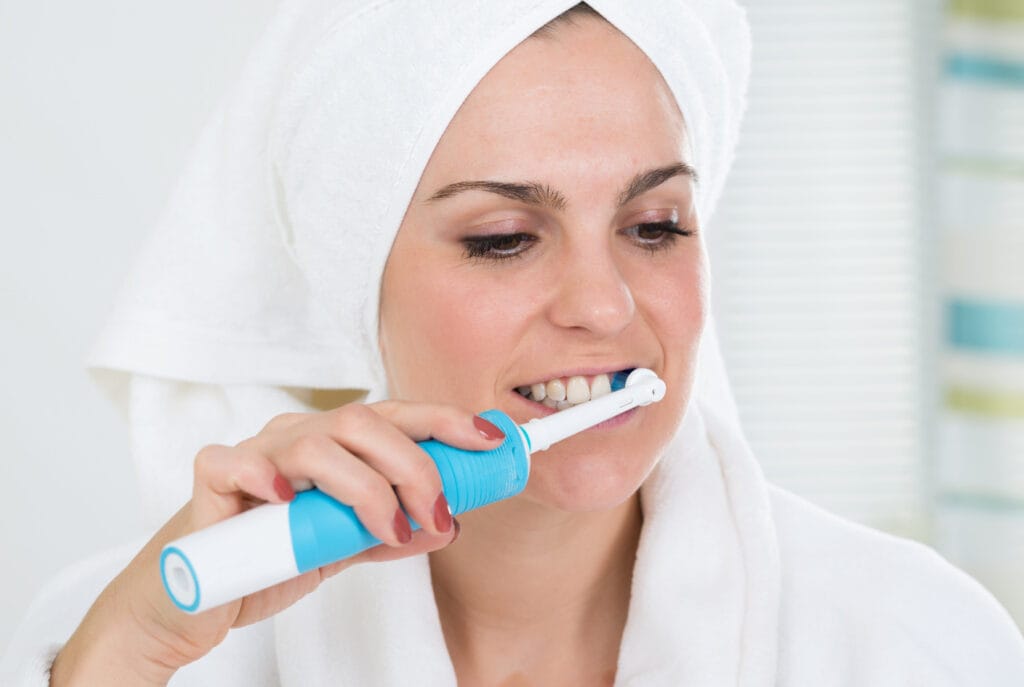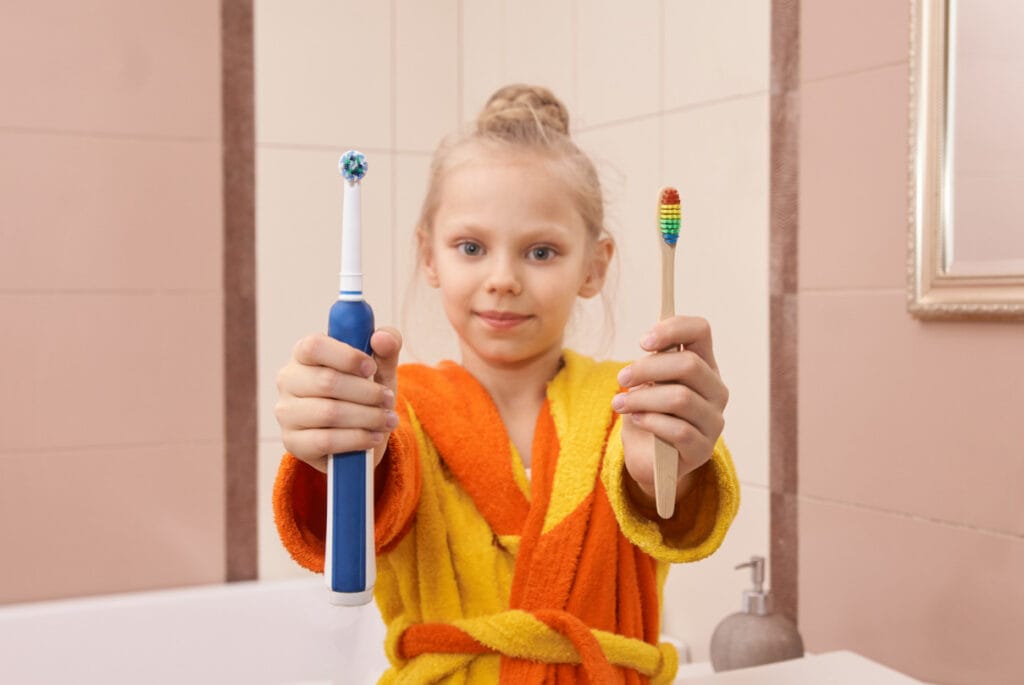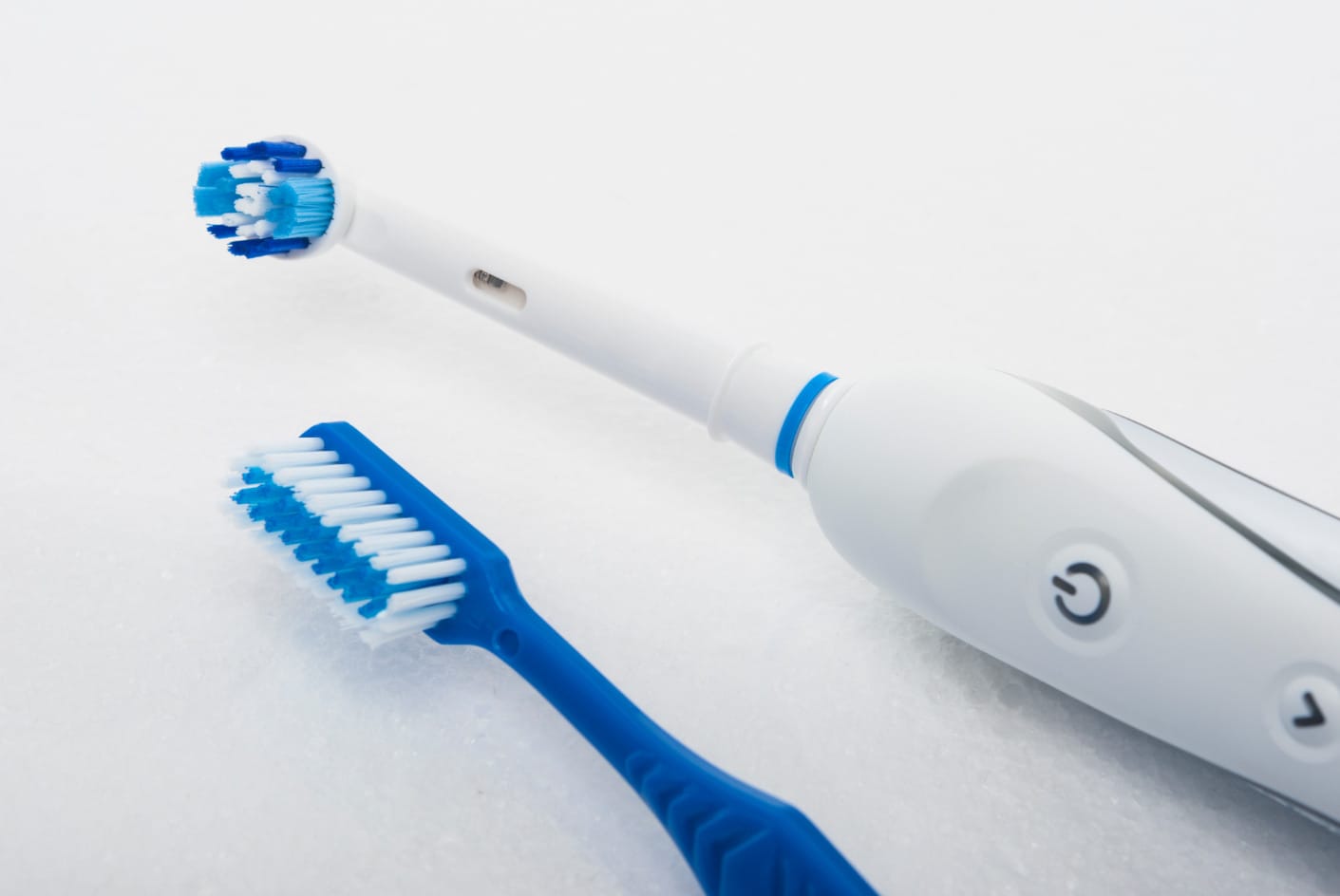There is an opinion that electric toothbrushes clean teeth and mouth better than the more common manual ones. We decided to check if this is true.
On the Internet you can find many articles with a comparison of electric and manual toothbrushes, and usually their authors are inclined in favor of the former. The media write about this (for example, “Gazeta.ru" And "Express newspaper") and specialized dental portals. Resourcesdedicated to technology and new technologies, also advise readers should choose electric toothbrushes because they are more effective. Discussing this question and users social networks.
Electric toothbrushes were invented back in 1954, but became widespread relatively recently. These devices vary by type of movement (vibration and rotational-oscillatory) and by speed (sonic, that is, rotating at a speed that creates sound perceptible to the human ear, and faster ultrasonic).
The cost of electric brushes is significantly higher than usual: prices on popular marketplaces in Russia in July 2023 manual brushes start at 19 rubles, while electric models popular stamps cost from 990 rubles (in addition, periodically they require buy more replaceable nozzles). Therefore, before switching from a manual brush to an electric one, many people ask whether it is worth the money.
Researchers at the prestigious medical Cochrane Library conducted a study in 2014 review existing scientific literature at that time on the effectiveness of electric toothbrushes (without specifying their type) compared to manual ones and came to the conclusion that in the short term the former actually cope better with plaque and gum inflammation. However, the long-term effects of such brushes on oral health remained unclear.

In 2019, German scientists published generalized data 11-year follow-up of oral health of 2819 people. They concluded that those who used electric toothbrushes were less likely to develop (or progress more slowly) periodontal disease and caries, and also experienced less tooth loss. Scientists note that, apparently, in the long term, the use of such brushes is preferable for oral health. This study, like the previous one, did not take into account the type of electric brush.
Dentists notethat the key to using toothbrushes is proper technique. You need to brush your teeth for at least two minutes, making circular movements, holding the brush at the right angle and without pressing on it. In many modern models With electric brushes, all this is controlled automatically: there is a built-in timer that allows you to monitor the cleaning time, the brush head makes the necessary circular movements, much faster than it would be possible to do manually, some devices even have a sensor that gives a signal if the user presses the brush too hard against the teeth and can thereby harm the enamel or gums.
This ease of use is especially important for children and teens, who may not be aware of proper technique or care about how they brush their teeth. In 2018, German scientists conducted experiment: They took 60 teenagers aged 13 to 17 years and divided them into two groups, the first of which used a regular brush, and the second used a rotary-oscillating electric brush. During the experiment, the process of brushing teeth was carried out under the supervision of specialists, and it turned out that teenagers using electric brushes brushed their teeth longer. Two weeks later, dentists examined the oral cavity of the subjects and found that in the group using electric brushes, the amount of plaque was lower by more than 30%.

In 2019, a group of scientists from different countries studied The effectiveness of electric toothbrushes of the rotational-oscillatory type when brushing children's teeth. The study involved 41 children in two age categories (three-six and seven-nine years); The younger group had their teeth brushed by their parents, while the older group did it independently under adult supervision. The experiment lasted about a month and took place in four stages: each child used both types of brushes twice during the study; the order in which they were applied was determined randomly. The results revealed that electric brushes were 32.3% more effective in removing plaque from children in the younger group and 51.9% more effective in the older group.
But studies conducted among elderly subjects Brazilian And Norwegian scientists did not find a statistically significant difference in dental health and the amount of plaque after brushing with a regular toothbrush and an electric one.
According to research, conducted back in 1996 by German dentists, different types of electric toothbrushes are more convenient for people wearing braces. During the experiment, 38 orthodontic patients used different types of electric toothbrushes for four weeks and found that their use allowed them to maintain oral hygiene without the use of additional tools (interdental brushes and dental floss) required for manual brushing.
At the same time, experts notethat using an electric brush, with all its advantages, is not at all a necessary condition for dental health. Also with a hand brush Can It is quite effective in keeping your mouth clean if used correctly. Much more important The regularity of brushing your teeth rather than the type of brush you use.
Thus, reputable clinical studies confirm that electric toothbrushes of various types, compared to manual ones, are more effective at removing plaque in children and adults and helping to maintain healthy teeth longer. The results of studies conducted on older people did not show a statistically significant difference between regular toothbrushes and electric ones. Nevertheless, dentists note that if you use a manual brush correctly, it can also quite effectively maintain oral hygiene; it is not necessary to buy an expensive electric brush for this. At the same time, with the help of such devices, it is really easier to take care of the cleanliness of your teeth due to various sensors and a timer that help control the correctness of the technique and the required duration of the procedure.
Cover photo: Getty Images (via Canva)
Read on the topic:
- Is it true that fluoride toothpastes are dangerous to your health?
- Is it true that flossing helps prevent tooth decay and gum disease?
- Is it true that you should brush your teeth before breakfast to avoid swallowing bacteria?
If you find a spelling or grammatical error, please let us know by highlighting the error text and clicking Ctrl+Enter.






